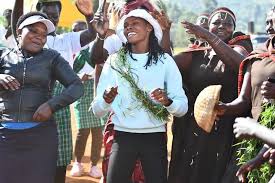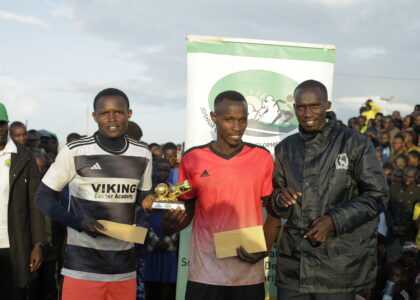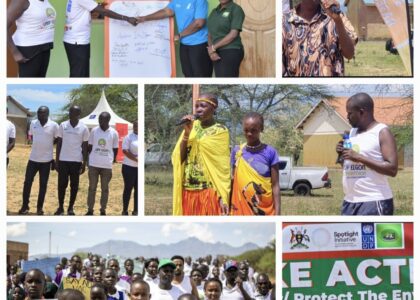Dear Friends, I am deeply honored to welcome you to the Joshua Cheptegei Development Foundation (JOCDEF). My journey in athletics
Until the emergence of athletics superstars in Sebei, the sub-region had for years been tagged to the notorious practise of female circumcision female also referred to as female genital mutilation.
The practise involves the partial or total removal of external female genitalia.
Worldwide, the global health agency WHO reports that more than 200 million girls and women alive today have undergone the cut in 30 African countries, the Middle East, and Asia.
The practice is often forced upon girls of 12 to 17 years. Sometimes even those who marry at 20 years are forced by husbands to undergo the ritual.
FGM is widely considered a violation of the rights of girls and women and for that Uganda criminalized the practice in 2010 with a maximum penalty of 10 years imprisonment. Government data indicates that prevalence rates, when compared to other African countries, are low with only 0.3 per cent of women between 15 and 49 years, having gone under the knife.
Nevertheless, communities in Sebei and Karamoja sub-regions still have some pockets of people practising the vice.
Just in August 2021, the media reported that the United Nations had sent a fact-finding team to eastern Uganda to investigate a “surge” in the number of women and girls undergoing FGM in Sebei, especially in Bukwo District, which has been registering many more cases of FGM despite the practice having been outlawed in 2010.
For many years, the government in partnership with global bodies such as WHO, have preached the dangers of the practice. Similarly, the local communities have been pushing for more public awareness campaigns, demanding the law enforcement o be stepped up in remote and rural areas where the practice persists.
Performed by traditional cutters, often with unsterilized blades, girls can bleed to death or die from infections. FGM can also cause lifelong painful conditions such as fistula. FGM can also cause severe bleeding, pain while urinating, and infections as well as complications during childbirth and increased risk of newborn deaths.
To address some of the above issues, the Joshua Cheptegei Development Foundation has taken a particular interest in addressing this vice in Sebei and neighbouring districts. This is partly why the Foundation has engaged many community members to keep our girls longer in school and keep them away from the harmful practice until they complete and are ripe for marriage at the right age.










